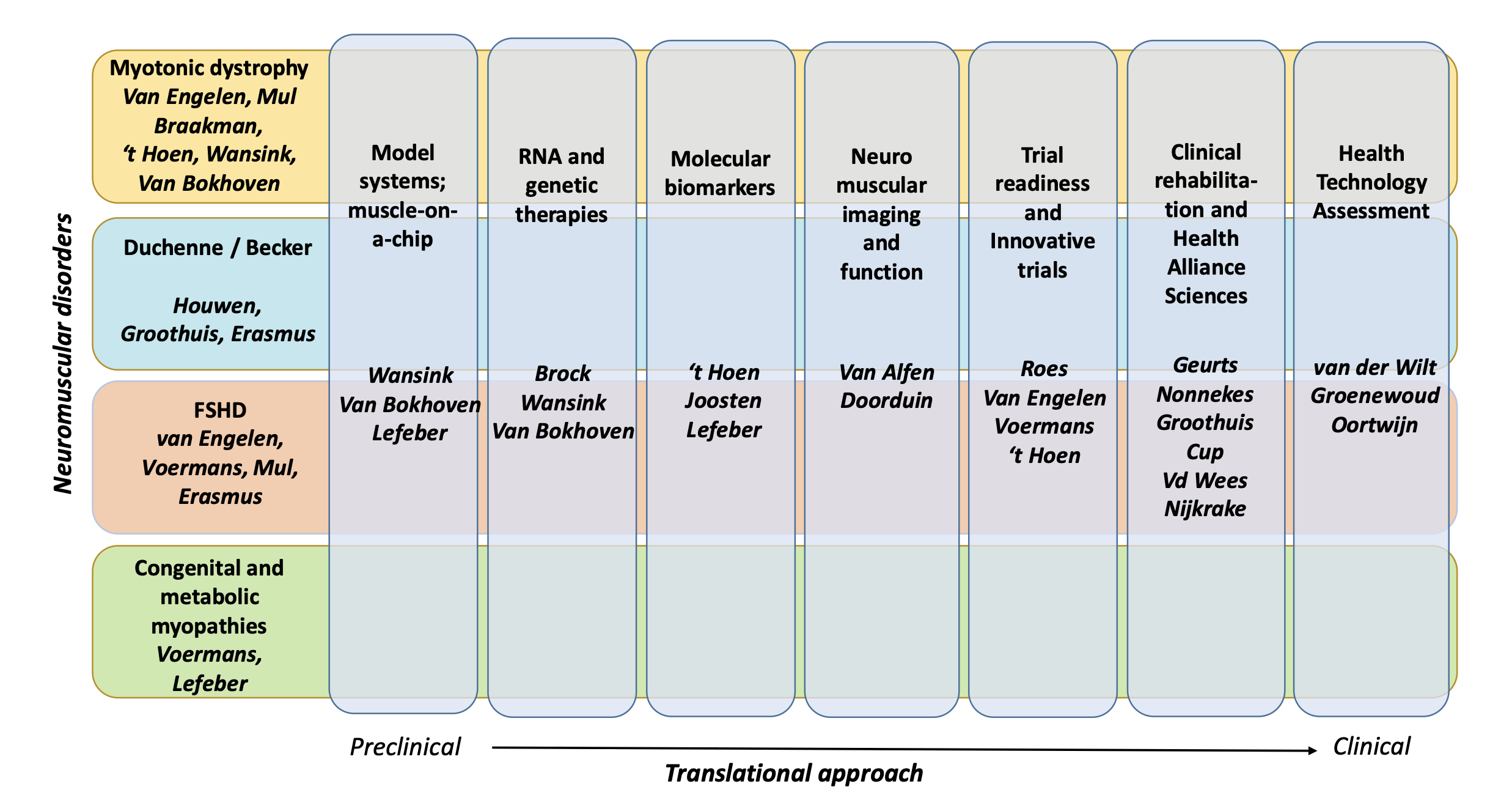New Radboudumc research program “Neuromuscular disorders: rare disorders require personalized treatment”
Publicatie: 31 October 2023
Within Radboudumc, the research has been reorganized into different research programs. These are interdisciplinary research programs in which both preclinical and clinical researchers are involved. The programs are driven by questions from clinical practice and translated into hypotheses that can be investigated in the laboratory and in the clinic.
The Neuromuscular disorders (NMD) program is led by Nicol Voermans and Peter-Bram ‘t Hoen and focuses on four different disease areas: Myotonic Dystrophy (MD), FacioScapuloHumeral muscular Dystrophy (FSHD), Duchenne Muscular Dystrophy (DMD), and Congenital and Mitochondrial Myopathies. These are the horizontal focus areas of the program (see figure). They are intersected with vertical, method-focused areas that are often disease-agnostic.
The objectives of the research program reflect the gradual shift from research on rapid and accurate diagnosis to the development of new treatment methods and optimization of care for patients with NMD. Mentioned diseases have in common that there are significant differences in the disease progression among patients with the same genetic diagnosis. The research program’s mission is to better understand these differences and translate them into personalized treatment strategies.
The common core values of the researchers in the NMZ program are that they acknowledge:
- the value of translational research, from the patient to cell culture and back to the patient
- the necessity of a coherent program that focuses on both congenital forms of the disease and forms of the disease that manifest in childhood or adulthood
- the importance of mechanistic research into the causes of heterogeneity in disease progression and response to therapy
- a holistic view of the well-being of the patient and personalized treatment
- the necessity of simultaneously researching classical medications, advanced genetic and gene therapies, rehabilitation therapy, and lifestyle interventions, as these will likely need to be combined in the future
- the importance of monitoring patients using molecular, clinical, patient-reported outcome measures, and imaging techniques
- the need for the development of clinical trials with innovative designs that account for heterogeneity among patients and the limited number of patients who can participate in clinical trials
- the importance of co-designing and conducting multicenter and sponsored clinical trials
- the importance of patient participation in all phases of the research
The program realizes its impact by intensifying collaboration within the program, with other (Dutch and foreign) researchers, and with patient organizations, and by jointly applying for grants and optimizing care pathways.
If you would like to contribute in any form, please send an email to the coordinators Nicol.Voermans@radboudumc.nl or Peter-Bram.tHoen@radboudumc.nl.

